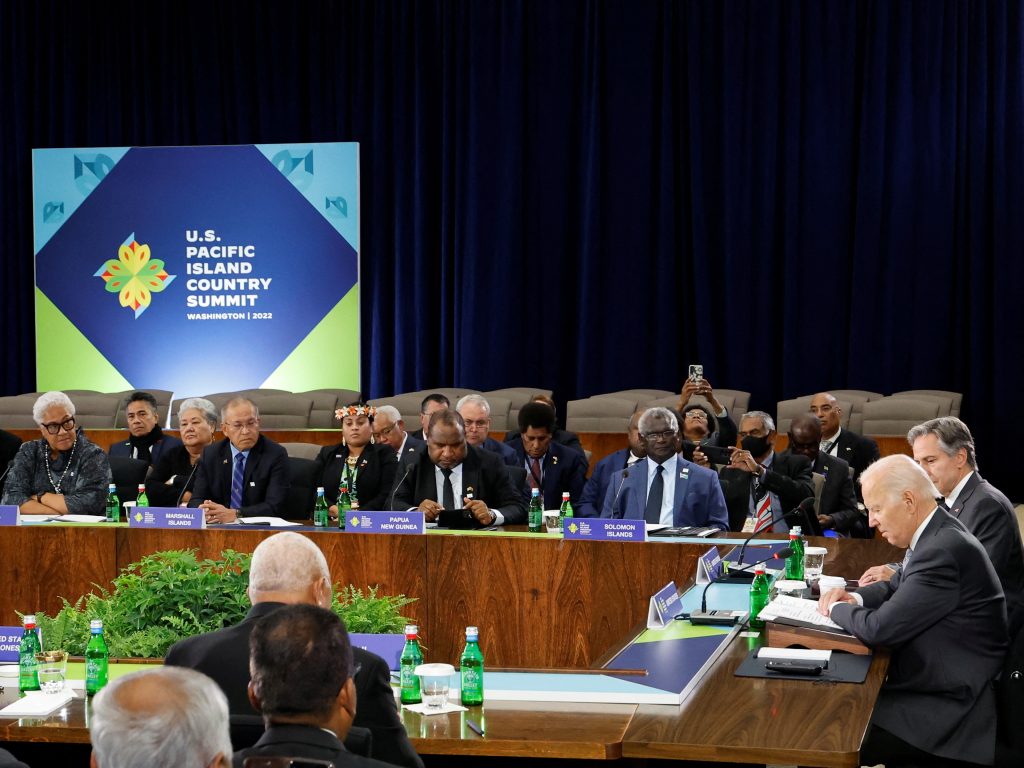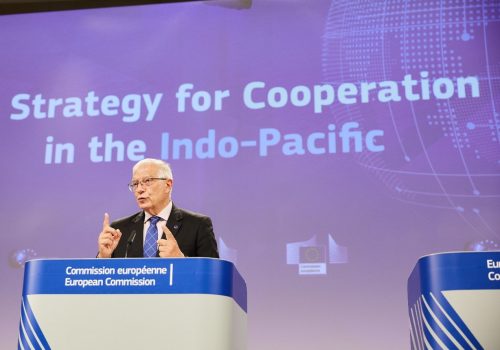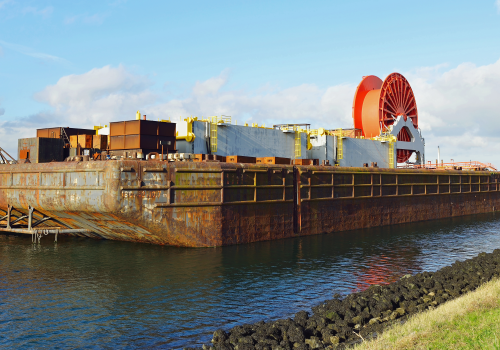Over the past year, US and European engagement in the South Pacific has noticeably accelerated. Wooing these islands away from Chinese influence is clearly a priority but there are many dimensions to this. The “Blue Pacific” is more than a consortium of scattered islands. They see themselves as large ocean states, which collectively make up the second-largest Exclusive Economic Zone in the world. While they are important as we game out Taiwan scenarios, the peoples of the South Pacific want their region to remain immune from “great-power games.” This calls for a subtle Transatlantic strategy emphasizing partnership.
This report acknowledges the mistakes of past engagement strategies, which didn’t approach the region as a coherent whole, lacked sustained and continuous effort, and always came second to other priorities in the Indo-Pacific region.
We argue in favor of building on the strong momentum of President Biden’s meeting with South Pacific leaders and the European Union’s 2021 Indo-Pacific strategy, its first-ever. Any successful engagement strategy must prioritize the islands’ existential concerns about climate change and rising sea levels. The US and the Europeans are better placed than competitors to deliver on this given their expertise on building resilience infrastructure and their stronger energy transition commitments. Maritime security, connectivity and transport, and assisting with the diversification of local economies should be the other pillars of our strategy.
US and European development assistance is dwarfed by Australia and New Zealand, which is inevitable. However, targeting resilience projects, where the former countries already have an edge, will generate recognition and credibility. The disparity in income levels across the region puts richer islands at a disadvantage when applying for funding from multi-lateral development institutions. These thresholds should be softened when there is a clear existential case for investment. While China is to remain an important partner of the South Pacific islands, governments need a multitude of options to avoid being leveraged by Beijing.
Related content

The Europe Center promotes leadership, strategies, and analysis to ensure a strong, ambitious, and forward-looking transatlantic relationship.

At the intersection of economics, finance, and foreign policy, the GeoEconomics Center is a translation hub with the goal of helping shape a better global economic future.
Image: U.S. President Joe Biden and Secretary of State Antony Blinken attend the U.S.- Pacific Island Country Summit at the State Department in Washington, U.S. September 29, 2022. REUTERS/Jonathan Ernst


